Embarking on a vegan journey often raises concerns about meeting nutritional needs. This article aims to demystify vegan nutrition, providing you with the knowledge you need to maintain a balanced, nutrient-rich vegan diet.
Understanding Vegan Nutrition
A well-planned vegan diet can provide all the nutrients your body needs. Here’s a breakdown of key nutrients and their plant-based sources:
Protein
Contrary to popular belief, obtaining enough protein from a vegan diet is quite feasible. Foods like lentils, chickpeas, tofu, quinoa, and seitan are excellent sources of protein. Each of these foods contains a significant amount of protein per serving. For example, one cup of cooked lentils contains about 18 grams of protein, while a cup of cooked quinoa provides around 8 grams.
Iron
While plant-based iron isn’t as readily absorbed as animal-based iron, consuming vitamin C-rich foods alongside iron-rich foods can enhance absorption. Spinach, lentils, chickpeas, and fortified cereals are good sources of iron. For instance, one cup of cooked spinach contains about 6.4 mg of iron. Pairing these foods with fruits like oranges or strawberries can increase iron absorption.
Calcium
Calcium is crucial for bone health. Vegans can obtain calcium from fortified plant milk, tofu made with calcium sulfate, and leafy green vegetables like kale and bok choy. One cup of fortified almond milk can provide around 450 mg of calcium, which is about 45% of the recommended daily intake.
Vitamin B12
Vitamin B12 is typically found in animal products, but vegans can obtain it from fortified foods or supplements. Nutritional yeast, a popular cheese substitute among vegans, is often fortified with B12. A serving of nutritional yeast can provide well over the daily recommended intake of B12.
Omega-3 Fatty Acids
Omega-3 fatty acids are essential for heart and brain health. Flaxseeds, chia seeds, hemp seeds, and walnuts are excellent plant-based sources. A tablespoon of flaxseeds contains about 1.8 grams of omega-3.
As you can see, a vegan diet can be nutritionally complete and incredibly satisfying. With a bit of planning and knowledge, you can enjoy a diverse, nutrient-rich diet that aligns with your ethical values.










